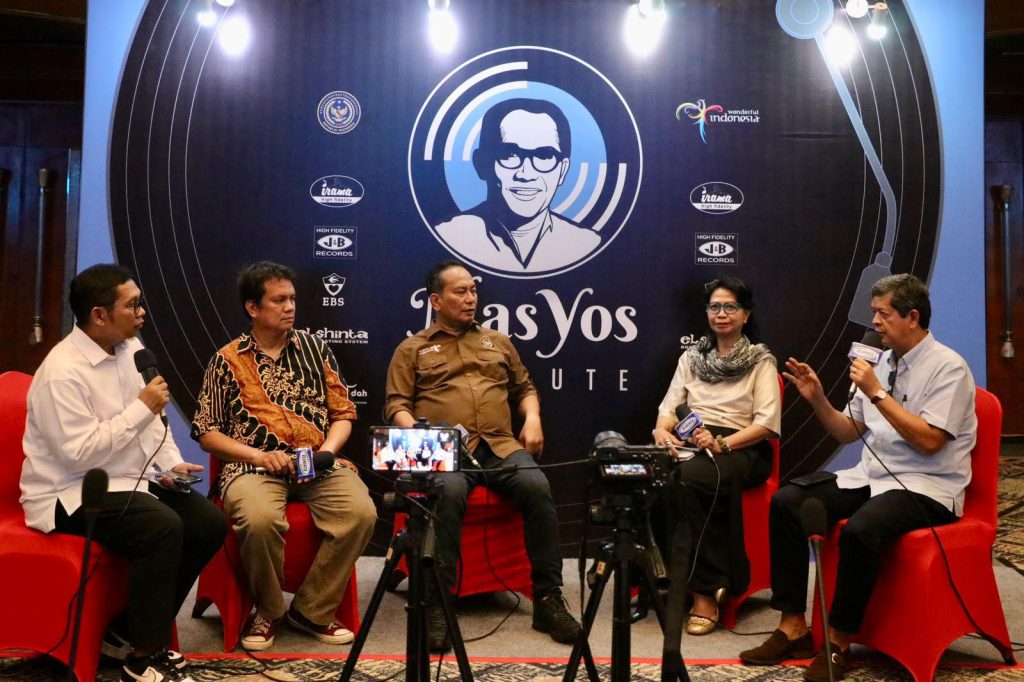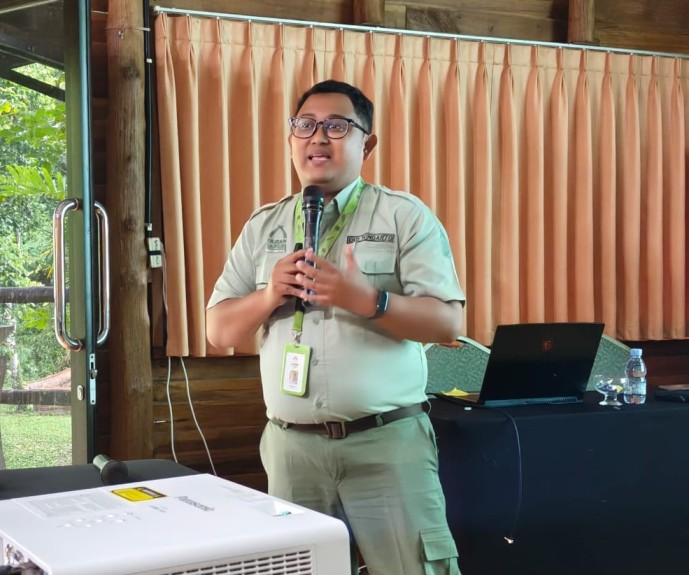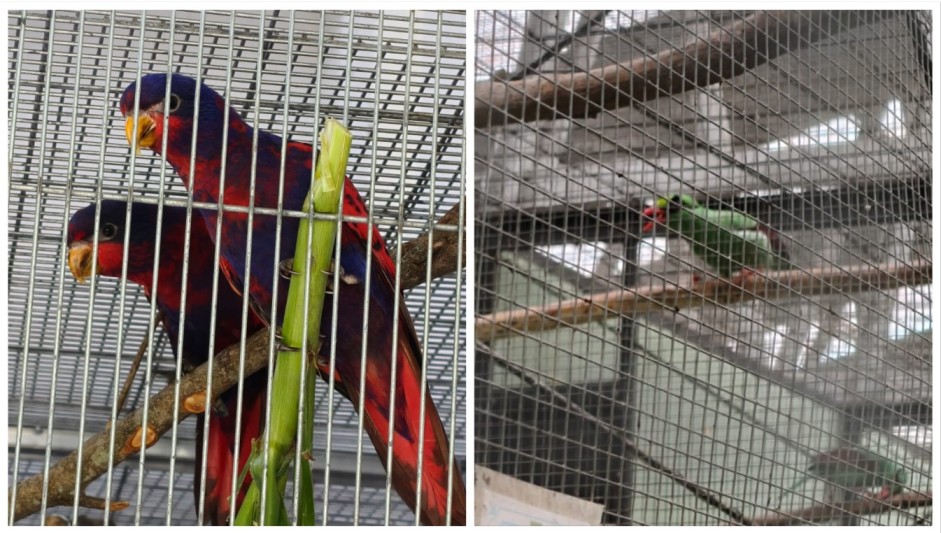Profile – ‘A Tribute to Mas Yos’, Management of the music industry, recorded media and radio over time

Digital platforms today and in the future demand the music industry to continue to innovate in several areas including distribution, promotion, and artist management to survive and develop in the digital era.
Jakarta (Indonesia Window) – The development of information technology and the emergence of digital platforms such as social media and Over The Top (OTT/media services offered directly to viewers via the internet) have changed the pattern of music and media consumption in Indonesia.
The new generation that is more familiar with this technology is starting to leave conventional media such as radio, which was previously the main source of entertainment and information.
Elshinta Suyoso, Chairperson of the organizing committee of a focus group discussion (FGD) carrying the theme ‘A Tribute to Mas Yos’, to commemorate the legacy of Mas Yos’ works, began with an FGD on Wednesday (August 21) saying, “the recorded music and radio industry in Indonesia has gone through a long journey filled with innovation, challenges, and technological disruption.”
The FGD was held to discuss fundamental changes in the governance of the recorded music and radio industry management, and how these changes have shaped the landscape of the entertainment industry in Indonesia over time.

The participants are to discuss various aspects of the Indonesian music ecosystem, especially post-independence, with a focus on the role of Mas Yos, whose full name is Junior Commodore (Ret.) R. Suyoso Karsono, in pioneering the establishment of the recorded music industry and the first private commercial radio station in Indonesia.
“Mas Yos’ role in building and developing this industry is the foundation for many developments that have occurred in the music, recording and radio industries in Indonesia,” said Elshinta, daughter of The Singing Commodore.
The music industry, which was once dominated by physical recordings such as vinyl records, cassettes, and CDs, is now shifting to digital platforms and streaming formats. This has changed the business model of the recorded music industry as a whole, including how artists, record labels, and music distributors adapt to these changes.
There has been media disruption in the form of innovation and very substantial changes with the presence of digital technology.
Likewise with radio, which has experienced media disruption due to changes in public consumption patterns and their supporting ecosystems. The presence of the internet and music streaming platforms has given listeners many choices in accessing content at real-time speeds, so that conventional radio has begun to lose its listeners.
However, several adaptive radio stations have been able to utilize technology and expand their reach through online streaming and podcasts.
The history of the music industry in Indonesia is inseparable from the important role of Irama Records, which was founded in 1951 as the first labeled recording studio in Indonesia. Irama Records became a pioneer in the modern vinyl recording industry from shellac to vinyl that colored the Indonesian music world.
This recording studio is not only a gathering place for talented singers and musicians, but also plays a very significant role in spreading local music throughout the archipelago (Indonesia), even abroad.
The existence of the three recording studios he built, such as Irama Records, J&B, and Elshinta Records, reflects how the Indonesian music industry developed and how the governance of the industry was regulated orderly at that time.
Digital technology disruption is an era of innovation and fundamental massive change due to the presence of digital technology, changing the system that occurs in Indonesia and globally.
Mas Yos played a key role in discovering and developing the artistic talents of a number of legendary musicians and singers of various music genres in Indonesia. It is like an impresario complete with the necessary supporting elements around him.
Not only that, Mas Yos is also known as the founder of Radio Elshinta on the AM channel and Radio Suara Irama Indah on the FM Stereo channel, the first two private radio stations that have succeeded in becoming an important part that is close to people’s daily lives, especially in the distribution of music and information in Indonesia.
According to her, the future of the music and radio industry in Indonesia would be greatly influenced by how the players in this industry adapt to technological disruption. The biggest challenge is how to maintain relevance amidst changing consumption patterns and competition with increasingly dominant digital platforms.
Radio, for example, has to find ways to stay relevant in an era where information and entertainment can be accessed anytime and anywhere. Meanwhile, the music industry needs to continue to innovate in terms of distribution, promotion, and artist management to survive and develop in the digital era.
In short, Mas Yos’ daughter (Elshinta) hopes that the current discussion would not only cover history, but also how technological disruption affects the sustainability of the music industry in the digital era.
The goal is to go deeper into the process of struggle, challenges, and the future of this industry in Indonesia.
By reviewing the role of pioneers like Mas Yos and the impact of technological disruption, it is expected that it can provide further and deeper insight into how this industry can continue to develop and adapt to changing times.
“Through this discussion, we can learn from the past, understand current challenges, and design future strategies for the recorded music and radio industry in Indonesia,” Elshinta Suyoso said.
The event featured speakers:
- Muh. Neil El Himam, Deputy for Digital Economy and Creative Products, Ministry of Tourism and Creative Economy
- Rizky Handayani, Deputy for Industry and Investment, Ministry of Tourism and Creative Economy
- Elshinta Suyoso, keynote speaker, daughter of Mas Yos and founder of Tribute to Mas Yos
- Stanley Tulung, music observer
- David Tarigan, vinyl record industry observer, leader of Irama Nusantara
- Addie MS, composer and orchestral conductor
- Candra Darusman, musician and copyright activist
- Ahmed Kurnia, writer and moderator
- Haryo, host of Radio Elshinta
Reporting by Indonesia Window

.jpg)








